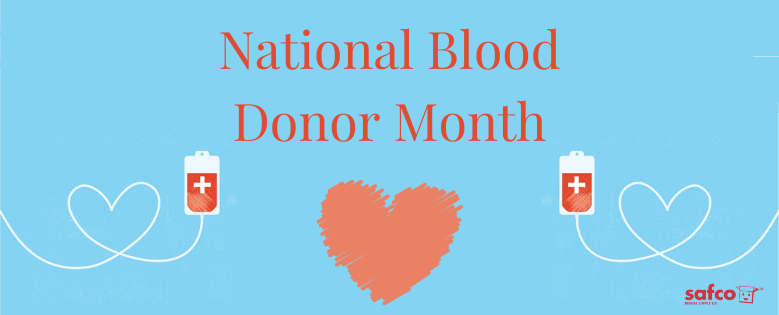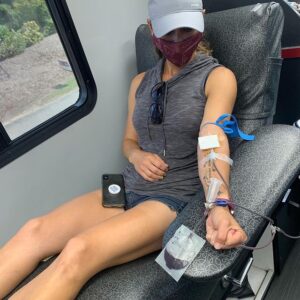|
Written by Lacy Walker |
Written On January 18, 2022 |

As healthcare practitioners, helping others is in our blood, so why not help by donating blood? January is National Blood Donor Month. This is a time to honor and recognize the lifesaving impact of blood and platelet donors. President Richard Nixon proclaimed January as National Blood Donor Month in 1969 to pay tribute to the voluntary blood donors and to encourage new donors to join in this life-saving endeavor.
The first time I volunteered to save a life by donating blood was 16 years ago. I had just left a long day of classes at hygiene school and was on the way to pick up my daughter from daycare. As I was driving, I noticed a sign posted outside of a church. I pulled over into the parking lot because my inner voice guided me to that place that I should donate to today.
After walking into the church, I placed my daughter in her stroller next to me and started the process of donating blood. As the needle and tube connected to the blood collection bag, I started to notice my daughter getting a bit anxious. After the completion of the collection of my O+ blood, I stood up in hopes to pick her up out of the stroller to console her.
I apparently got lightheaded and the next thing I knew, I was on the floor looking up at the ceiling with two healthcare professionals standing over me making sure I was safe. Let’s just say I don’t recall collapsing, and you guessed it, syncope, which after donating blood, is caused by a temporary lowering of blood pressure. It’s important to drink plenty of fluids the day of your donation which obviously I did not.

If you are thinking of donating blood, remember these key points before, during, and after.
Before:
- Drink plenty of fluids
- Be prepared to have your list of medications
- Prepare for a brief health exam to determine if you are a candidate
During:
- Relax
- Be patient
- Be prepared for lightheadedness
- Accept the food and beverages provided
After:
- Consider adding iron-rich foods to your diet to replace the iron lost during your blood donation.
- Repetition from above: Accept the food and beverages provided at the facility.
- Avoid strenuous physical exertion or heavy lifting for approximately five hours.
Donating blood can save a life and as healthcare professionals, that is our ultimate goal regardless of the sector in healthcare. I hope you take the opportunity when it arises to save a life.

Lacy Walker, RDH, CDA, MAADH, FAAOSH